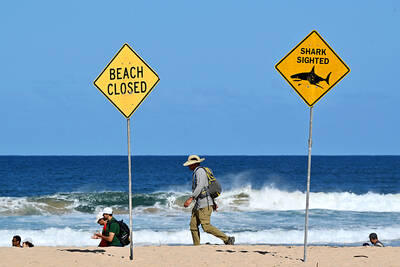Far fewer Americans see racism as a major problem in the US compared with 13 years ago, a poll released on Monday on the eve of the inauguration of the nation’s first black American president.
A new Washington Post-ABC News poll found that just over one in four Americans still saw racism as a “big problem” today, less than half of the 54 percent who said so in mid-1996, and that a majority of respondents believed race relations would improve during Barack Obama’s administration.
The survey showed broad disparities between how blacks and whites see the issue, however. It said just 22 percent of whites continued to see racism as a societal problem, compared with 44 percent of blacks. In 1970 those figures stood at 52 percent for whites and 70 percent for blacks.
Just over half of blacks said black Americans had achieved or would soon achieve racial equality in the US, while 75 percent of whites said African-Americans had achieved racial equality.
The poll, conducted by telephone from Jan. 13 to Jan. 16 among 1,079 adults, said just as many people today see racial bias in their local communities as did back in 2003, before Obama — the son of a black Kenyan father and a white American mother — hit the national stage.
Forty-seven percent of Americans — two thirds of blacks and 43 percent of whites — said they believed blacks experienced racial discrimination in their communities. The poll was released days after the Washington Post interviewed Obama, who said his election reflected the country’s improving views on race and that Americans should “focus on what we have in common.”
A new CNN/Opinion Research Corp poll said nearly seven in 10 black Americans believed that with the election of Obama, slain civil rights leader Martin Luther King’s dream of racial equality had been fulfilled.

With much pomp and circumstance, Cairo is today to inaugurate the long-awaited Grand Egyptian Museum (GEM), widely presented as the crowning jewel on authorities’ efforts to overhaul the country’s vital tourism industry. With a panoramic view of the Giza pyramids plateau, the museum houses thousands of artifacts spanning more than 5,000 years of Egyptian antiquity at a whopping cost of more than US$1 billion. More than two decades in the making, the ultra-modern museum anticipates 5 million visitors annually, with never-before-seen relics on display. In the run-up to the grand opening, Egyptian media and official statements have hailed the “historic moment,” describing the

SECRETIVE SECT: Tetsuya Yamagami was said to have held a grudge against the Unification Church for bankrupting his family after his mother donated about ¥100m The gunman accused of killing former Japanese prime minister Shinzo Abe yesterday pleaded guilty, three years after the assassination in broad daylight shocked the world. The slaying forced a reckoning in a nation with little experience of gun violence, and ignited scrutiny of alleged ties between prominent conservative lawmakers and a secretive sect, the Unification Church. “Everything is true,” Tetsuya Yamagami said at a court in the western city of Nara, admitting to murdering the nation’s longest-serving leader in July 2022. The 45-year-old was led into the room by four security officials. When the judge asked him to state his name, Yamagami, who

‘CHILD PORNOGRAPHY’: The doll on Shein’s Web site measure about 80cm in height, and it was holding a teddy bear in a photo published by a daily newspaper France’s anti-fraud unit on Saturday said it had reported Asian e-commerce giant Shein (希音) for selling what it described as “sex dolls with a childlike appearance.” The French Directorate General for Competition, Consumer Affairs and Fraud Control (DGCCRF) said in a statement that the “description and categorization” of the items on Shein’s Web site “make it difficult to doubt the child pornography nature of the content.” Shortly after the statement, Shein announced that the dolls in question had been withdrawn from its platform and that it had launched an internal inquiry. On its Web site, Le Parisien daily published a

DEADLY PREDATORS: In New South Wales, smart drumlines — anchored buoys with baited hooks — send an alert when a shark bites, allowing the sharks to be tagged High above Sydney’s beaches, drones seek one of the world’s deadliest predators, scanning for the flick of a tail, the swish of a fin or a shadow slipping through the swell. Australia’s oceans are teeming with sharks, with great whites topping the list of species that might fatally chomp a human. Undeterred, Australians flock to the sea in huge numbers — with a survey last year showing that nearly two-thirds of the population made a total of 650 million coastal visits in a single year. Many beach lovers accept the risks. When a shark killed surfer Mercury Psillakis off a northern Sydney beach last